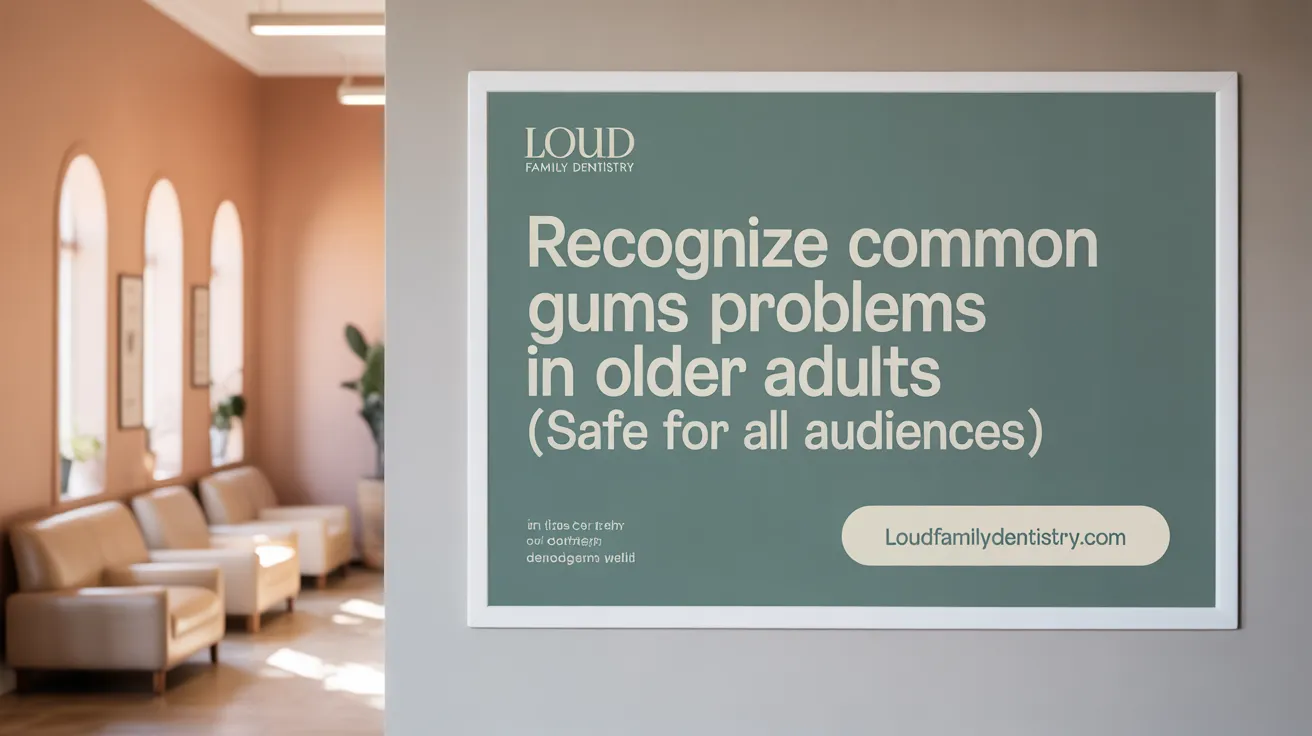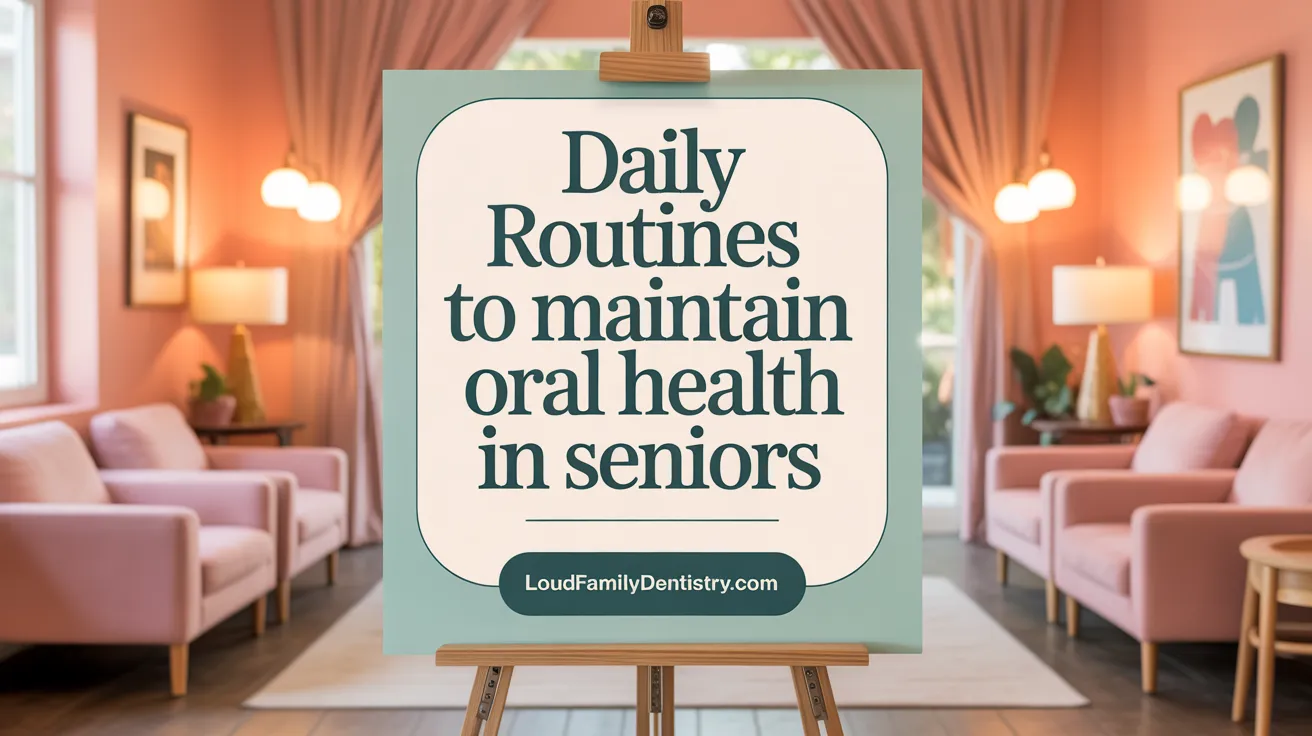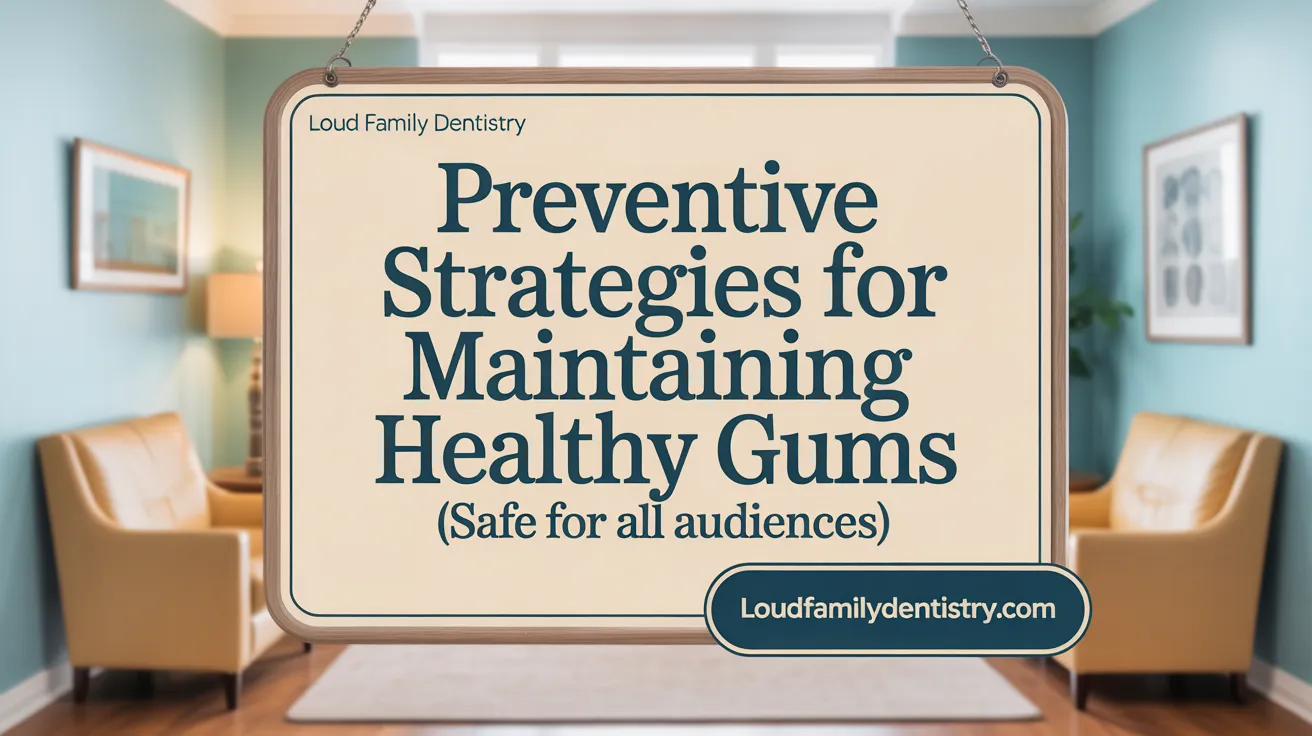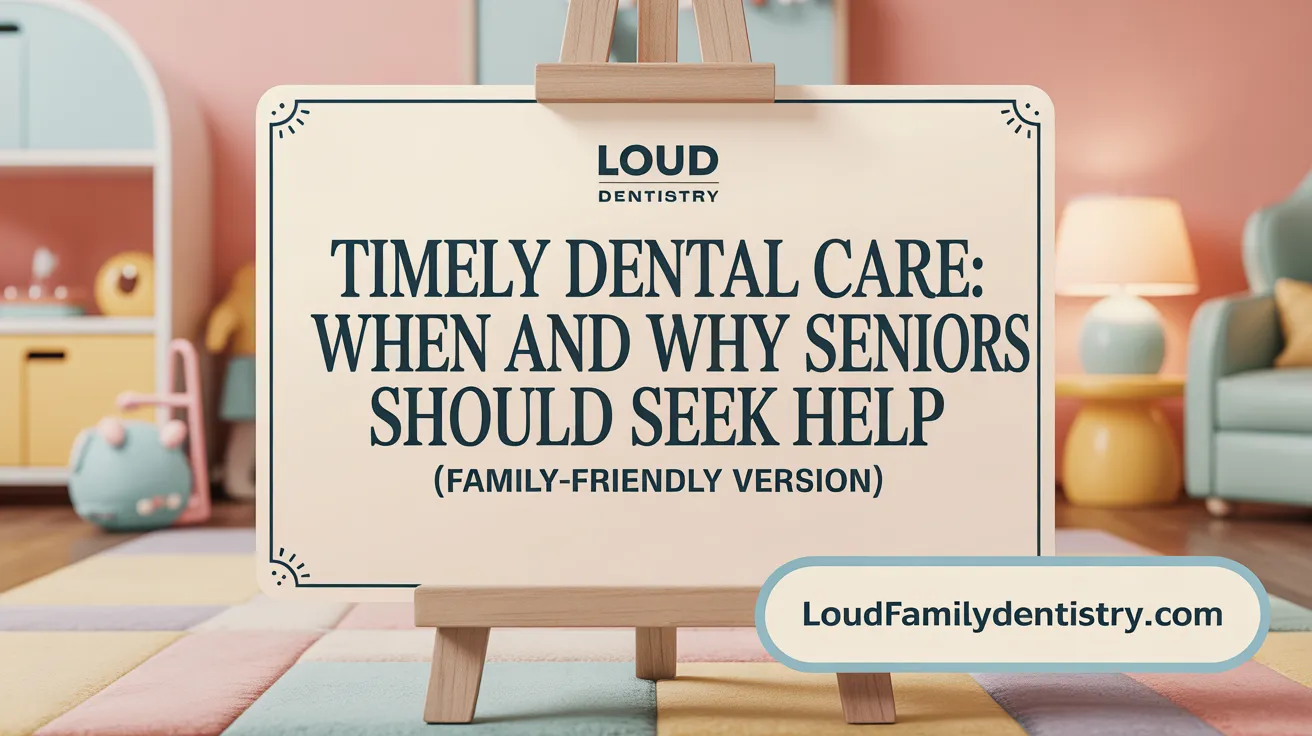Understanding the Importance of Gum Health with Age
As we age, changes in our bodies affect our oral health, particularly our gums. Maintaining healthy gums is vital not only for a confident smile but also for overall systemic health. Older adults face unique challenges such as gum recession, dry mouth, and increased susceptibility to gum disease and tooth loss. This article explores practical daily routines, preventive strategies, and expert advice to help seniors keep their gums healthy and comfortable throughout the aging process.
How Aging Impacts Gum Health and Common Issues Among Older Adults

How does aging impact gum health and what common issues do older adults face?
Aging brings about various changes in oral tissues, particularly the gums. As people age, cell renewal slows down, leading to thinner, less elastic gum tissue that is more susceptible to injury and infection. Bone density also decreases, which can cause the supportive structures around teeth to weaken. These physiological changes make gums more vulnerable to diseases such as periodontal disease.
Older adults frequently encounter problems like receding gums, which expose the roots of teeth and increase the risk of decay and sensitivity. Dry mouth is another common issue, mainly caused by medications or health conditions, reducing saliva's natural protective effects against bacteria and acid.
Receding gums and dry mouth both heighten the likelihood of cavities, mouth infections, and gum inflammation. Systemic health conditions such as diabetes can worsen these effects, impairing the immune response and making gum disease harder to control. Lifestyle habits like smoking further contribute by damaging blood vessels, impairing circulation, and hindering gum healing.
Overall, these age-related issues contribute to a higher prevalence of gum disease, dental decay, oral cancers, and tooth loss among seniors. Maintaining good oral hygiene, regular dental checkups, and managing underlying health conditions are essential measures to protect gum health in older adults.
| Issue | Description | Impact |
|---|---|---|
| Receding Gums | Gums pull away from teeth, exposing roots | Sensitivity, increased cavity risk |
| Dry Mouth | Reduced saliva production due to medications or aging | Increased decay, infections |
| Periodontal Disease | Infection of gums and supporting tissues | Tooth loss, bone damage |
| Oral Cancer | Higher risk with age, tobacco, alcohol, HPV | Life-threatening if untreated |
Understanding these changes underscores the importance of attentive oral hygiene, lifestyle modifications, and regular professional care to maintain oral health in aging populations.
Search query: aging effects on gum health in older adults
Daily Oral Care Routines for Maintaining Healthy Gums in Seniors

What daily care routines can help maintain healthy gums as you age, and how can changes in gum health be noticed?
Maintaining healthy gums is essential for overall oral health, especially in seniors. A fundamental routine involves brushing teeth twice daily with a soft-bristled toothbrush and fluoride-containing toothpaste. Elective options like electric toothbrushes are beneficial for those with arthritis or limited hand mobility, making brushing more effective and comfortable.
Flossing daily is crucial to remove plaque and food particles lodged between teeth, where a toothbrush cannot reach. Alternative tools such as interdental brushes or floss holders also help maintain cleanliness and reduce gum inflammation.
Regular dental visits—typically twice a year—allow professionals to monitor gum health, look for signs of recession, bleeding, or swelling, and provide professional cleaning to remove tartar that brushing can't eliminate. Early notice of issues like persistent redness, bleeding gums, bad breath, or loose teeth should prompt prompt dental consultation.
Managing dry mouth, common among older adults due to medications, involves staying well-hydrated by sipping water frequently, using artificial saliva, and avoiding irritants like alcohol or tobacco. Good hydration keeps mouth tissues moist, reducing bacterial buildup and supporting gum health.
Nutrition also plays an important role. Eating foods rich in vitamin C and calcium, like citrus fruits, dairy, and leafy greens, helps strengthen gum tissue and bone. Crunchy vegetables stimulate saliva flow and mechanically clean teeth.
Avoiding harmful habits such as smoking and excessive alcohol intake supports gum and overall mouth health. Tobacco, in particular, impairs healing and increases gum disease risk.
Proper care extends to dentures and implants: cleaning them daily with appropriate cleaners and handling them carefully prevents gum irritation and infection. For those with missing teeth, these replacements help preserve facial structure and support remaining natural teeth.
In summary, daily routines complemented by regular professional care help detect early signs of gum problems and keep gums healthy. Recognizing symptoms like bleeding, swelling, or loose teeth allows timely intervention, ensuring a better quality of life through oral health.
Preventive Strategies and Best Practices to Preserve Gum Health

What preventive strategies and best practices are recommended for preserving gum health in older adults?
Maintaining healthy gums is essential for overall well-being and quality of life as we age. A fundamental approach includes adopting a comprehensive oral hygiene routine. Brushing twice daily with fluoride toothpaste and using dental floss or alternative interdental cleaning tools helps remove plaque that can cause gum disease.
Regular dental visits, ideally at least twice a year, allow professionals to detect early signs of gum problems such as gingivitis or periodontitis and provide necessary treatments. Professional cleanings also remove tartar buildup that cannot be eliminated by home care alone.
Diet plays a supportive role. Consuming foods rich in vitamin C and calcium, such as citrus fruits, dairy products, and leafy greens, promotes gum tissue repair and strengthens teeth. These nutrients help combat inflammation and support immune responses.
Managing systemic conditions like diabetes is crucial, as high blood sugar levels can exacerbate gum inflammation. Additionally, many medications cause dry mouth, which increases bacterial growth and the risk of gum infections. Staying well-hydrated, using artificial saliva products, and consulting healthcare providers about alternative medications can significantly reduce these risks.
Avoiding tobacco is one of the most impactful changes, as smoking weakens immune responses and impairs healing, leading to increased gum disease and tooth loss. Limiting alcohol intake also benefits oral health.
For seniors with dexterity challenges, adaptive tools such as electric toothbrushes, floss holders, and larger-handled brushes can facilitate effective cleaning.
Finally, limiting sugary and acidic foods minimizes plaque formation and prevents enamel erosion, further protecting gum health. Proper denture care and avoiding harmful habits are additional steps to maintain oral health.
By following these practices, older adults can reduce their risk of gum disease, improve their oral comfort, and safeguard their overall health.
Search Query: preventive oral health strategies seniors
| Practice Area | Recommended Actions | Supporting Benefits |
|---|---|---|
| Oral Hygiene | Brush twice daily, floss daily, use antimicrobial mouthwash | Removes plaque, prevents gingivitis |
| Dental Care | Biannual dental visits, professional cleaning | Early detection, plaque removal |
| Diet & Nutrition | Consume vitamin C, calcium-rich foods | Gums repair, immune support |
| Systemic Condition Management | Control blood sugar, hydrate well, manage medications | Reduce infections, dry mouth |
| Lifestyle Habits | Quit smoking, limit alcohol | Improve healing, lower cancer risk |
| Adaptive Tools | Electric toothbrushes, floss holders | Facilitate effective cleaning |
| Dietary Restrictions | Limit sugary and acidic foods | Prevent cavities, enamel erosion |
Professional Dental Care: When and Why Seniors Should Seek It

When should older adults seek professional dental care for aging-related gum issues?
Older adults must remain vigilant regarding their oral health to prevent severe complications. Immediately schedule a dental evaluation if you notice persistent bleeding gums, swelling, tenderness, or pain. Loose teeth or mouth sores that don’t heal within a couple of weeks also warrant prompt professional attention.
Regular dental visits—ideally once a year—are crucial for early detection of gum disease like periodontitis. Such checkups help monitor gum health, identify early signs of infection, and allow for preventive care before irreversible damage occurs.
Signs indicating the need for early evaluation include changes in denture fit, dry mouth symptoms, or visible oral lesions. Furthermore, systemic diseases such as diabetes and heart conditions can exacerbate gum problems, making professional oversight essential.
Professional treatments like scaling and root planing—deep cleaning procedures—are commonly used to treat periodontal issues. In more advanced cases, procedures like gum grafts can help restore lost tissue.
Addressing issues with dentures, such as poor fit or irritation, is also important to prevent additional infections. Infections like fungal or bacterial mouth infections require prompt treatment.
Lastly, systemic health conditions and their medications can impact oral health, requiring tailored dental care to manage complications effectively. Early and regular professional dental evaluations are vital for maintaining both oral and overall health in aging populations.
Educational Guidance and Addressing Age-Related Oral Health Challenges
How can education help seniors maintain gum health as they age?
Educating seniors and their caregivers is crucial for sustaining good oral health. Focused tips include establishing a routine of brushing twice daily with fluoride toothpaste and flossing daily to remove plaque and prevent gum disease. Routine dental checkups facilitate early detection of common issues like gingivitis and periodontitis, which can be painless until advanced.
Proper nutrition also plays a vital role. Eating foods rich in vitamin C, calcium, and other nutrients supports gum tissue health and bone integrity. Managing dry mouth through hydration, artificial saliva products, and saliva-stimulating gums can protect against decay. Adaptive tools like electric toothbrushes, larger handles, and floss holders are especially helpful for those with limited dexterity.
Careful education for caregivers helps them assist with daily routines and ensure adherence. Collaborating with dental, medical, and caregiving professionals creates a comprehensive, tailored care plan suited to the individual's health conditions, ultimately supporting healthier aging.
How can age-related oral health challenges be addressed through education and care tips?
Addressing oral health challenges in older adults involves delivering education through interactive sessions and personalized approaches. Training seniors and caregivers on proper brushing and flossing techniques, denture care, and recognizing early signs of gum disease helps prevent worsening issues.
Providing guidance on managing dry mouth—such as sipping water regularly, avoiding irritating foods, and using artificial saliva—reduces risks like bacterial overgrowth and cavities. Emphasizing the importance of regular dental visits encourages early intervention.
Furthermore, education on modifiable risk factors, such as quitting smoking and limiting alcohol, enhances overall oral health. Multidisciplinary collaboration, including dental professionals, healthcare providers, and caregivers, improves access to appropriate tools and personalized strategies. Continuous education boosts confidence in maintaining oral health and helps address specific physical or cognitive limitations, fostering healthier aging.
Maintaining Healthy Gums for a Lifetime
Healthy gums are a cornerstone of overall well-being as we age. By understanding the physiological changes that come with aging and adopting diligent daily oral care routines, seniors can prevent gum disease and preserve their natural teeth. Regular professional dental care, combined with education tailored to the unique needs of older adults and their caregivers, empowers effective management of age-related oral health challenges. Prioritizing nutrition, hydration, tobacco cessation, and adaptive oral hygiene tools further supports gum health. Together, these strategies contribute to a vibrant smile and improved quality of life throughout the golden years.
References
- Taking Care of Your Teeth and Mouth
- The aging mouth - and how to keep it younger
- Healthy Teeth and Gums at 60 and Beyond
- How Your Dental Health Changes With Age
- Aging changes in teeth and gums
- Oral Health for Older Adults: Quick Tips - MyHealthfinder
- Your Gums Change as You Age: Gum Health Through the ...
- 6 Ways to Keep Your Gums Healthy
- Four tips for maintaining healthy teeth and gums into old age
- Periodontal Care for Seniors: Tips for Maintaining Gum ...
